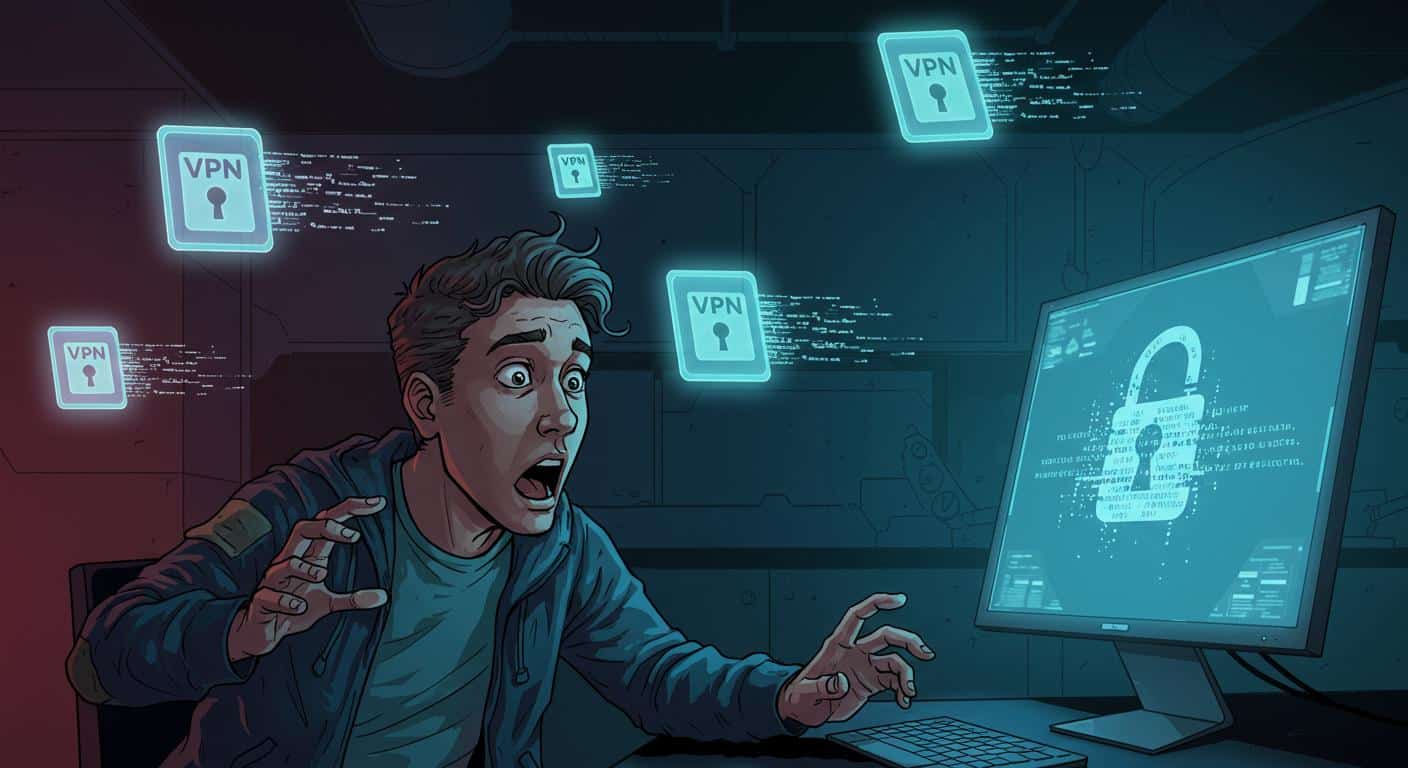Some stories really don’t require much embellishment—just a skeptical eyebrow and perhaps a minute spent rereading the timeline in disbelief. The recent situation with VPNSecure, whose new owners abruptly canceled thousands of customer “lifetime” VPN subscriptions after allegedly not realizing they existed, feels almost tailor-made for this category.
The Curious Case of the Vanishing Lifetimes
In a tale outlined by Ars Technica, VPNSecure’s new ownership discovered, apparently months after acquiring the business, that they were now host to a horde of “Lifetime Deal” subscribers. These users—expecting perpetual private internet access for a one-time payment—were blindsided by a spring email announcing that their accounts had been deactivated as of April 28, 2025. The language in the company’s communication suggested an attempt to frame the decision as preserving service quality for all, but for many, the key takeaway was simple: their “forever” access had quietly expired in the night.
Screenshots shared on Reddit paint a picture of embarrassment and exasperation from VPNSecure’s side. In these messages, management attributed the oversight to a lack of disclosure by previous owners, explaining that the business was acquired “including the technology, domain, and customer database—but not the liabilities.” The “lifetime” customer base had apparently been left out of the onboarding documents—a curious omission, given the digital paper trail left by deals sold through platforms like StackSocial.
If you ever wondered what happens when new software owners discover undocumented squatters, this might answer it. But perhaps the strangest detail, as detailed by Ars Technica, is the timeline: the owners say they only learned of the non-expiring accounts months post-acquisition, as support requests from these users started to strain the system, all while providing “no sustaining income” to fund ongoing service.
For affected users, VPNSecure offered a fresh menu of discounted subscriptions: $1.87 for a month (down from $9.95), or $55 for three years. One wonders if anyone paid for lifetime coverage expecting to bargain-shop again in a few years’ time, but that’s another question.
Due Diligence, or Digital Hide-and-Seek?
Curiosity naturally turns to how such a cohort of never-ending accounts failed to make an appearance during the company’s sale. In a detail highlighted by Ars Technica, the new owners, InfiniteQuant Ltd (based in the Bahamas), insisted they performed due diligence—reviewing six to twelve months of company financials in preparation for the purchase. Apparently, lifetime deals didn’t show up in listings, profit/loss statements, or even in communications with sellers. The listing shared by the VPNSecure team, dated April 2023, puts the company’s valuation at up to $344,770, but omits any mention of “lifetime” subscriptions.
Ars Technica also notes that the company website’s own language, at least according to the Internet Archive’s record, stayed clear of the term “lifetime.” It appears, instead, that these deals flourished offsite: advertising partnerships and deal sites like StackSocial, Wccftech, ZDNET (which, incidentally, promoted $40 and even $28 lifetime subscriptions as recently as 2021 and 2022), became the primary marketplace. That said, the email from VPNSecure this month frames the deals as limited to 2015-2017—though the continued ads found by Ars suggest otherwise. Did no one at InfiniteQuant think to plug “VPNSecure lifetime access” into a search engine before sealing the deal? Seems a little optimistic.
Tactful as an Alarm Clock at 3AM
The company’s communication strategy has been earning reviews about as warm as a VPN server in Siberia. Ars Technica describes a Trustpilot page now hosting a bonanza of one-star ratings—twenty pages’ worth—many written by users miffed not only over the cancellation itself, but also with the after-the-fact notification. One reviewer lamented that, “the comms should have been sent earlier (before the service was interrupted), and written with more clarity and empathy.” The consensus from the VPNSecure side? A belated acknowledgement that “notifying users after the deactivation was a poor experience, and we take full responsibility for that”—a sentiment relayed in both emails and public responses.
Meanwhile, discussion on Reddit has featured more than a few subtle (and not-so-subtle) jabs at the company’s due diligence process. As pointed out in the Reddit threads referenced by Ars Technica, some customers observed that “a simple Google Search would have shown lifetime deal offers from the past.” It’s a little like buying a used bookstore and only later discovering the labyrinthine back rooms full of forgotten ledgers—photos, incidentally, included.
Shell Games and Corporate Passports
Complicating things further, VPNSecure’s new identity is itself something of a moving target. The proprietor’s name currently listed is InfiniteQuant Ltd in the Bahamas, but the terms of service now reference HOLDXB Trading FZCO, in Dubai. Ars Technica, reviewing the site’s history, notes formerly it was Australia’s Boost Network Pty Ltd. Each handover seems to involve a new jurisdiction—almost as if VPNs weren’t already associated with global agility.
The outlet points out that the acquisition itself was an “asset only deal,” distinguished from a full assumption of liabilities. The VPNSecure team, in its messages to customers, explained (perhaps somewhat ruefully) that suing the previous owners would have been pricier than the company itself. Maybe someone, somewhere, is running a spreadsheet on the half-life of “lifetime” promises in the wild.
Lifetime: A Malleable Concept
If this episode illuminated anything, it’s that the digital “lifetime subscription” may owe more to the mayfly than the tortoise. Ars Technica observes that even the longest of VPNSecure’s “lifetime” subscriptions reportedly ran up to 20 years, potentially long enough for some users to forget their original outlay. The outlet also points out that a company’s bankruptcy, transfer of ownership, or shifting priorities can void such deals and leave users with little recourse—except perhaps an anecdote, a lesson, and a discounted renewal.
What’s especially striking is the pattern: new ownership, lack of up-front warning, and customers with “forever” subscriptions left out in the digital cold. It’s the sort of peculiar déjà vu you encounter if you spend long enough on the weirder edges of online commerce—where “lifetime” is often interpreted as a refreshingly subjective measurement.
Have we reached the stage where “lifetime” simply translates to “until the next business rebrand?” Or is it just another footnote for the annals of internet oddities?
Either way, VPNSecure’s not-so-eternal subscriptions offer another case study in the age-old dance between buyer expectations and corporate memory. For anyone tempted by future promises of “forever” in tech: the real lifetime guarantee might be in the story you get to tell afterward.







